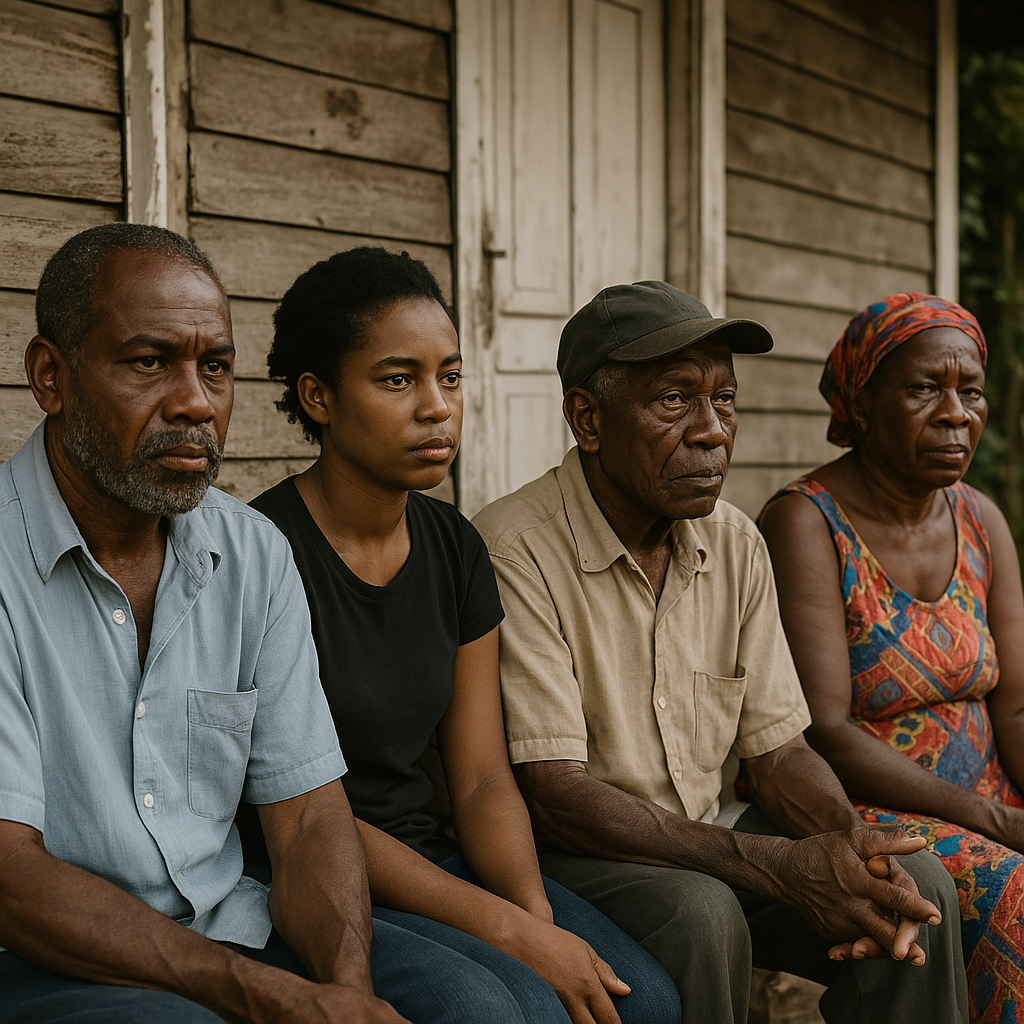UN Experts Urge Suriname to Tackle Deep-Rooted Racism and Uplift African Descendants
“Suriname has the opportunity to make a decisive break with the legacies of enslavement that permeate its society,” the Working Group stated.

In a powerful call to action following a 10-day fact-finding mission to Suriname, the United Nations Working Group of Experts on People of African Descent has urged the Surinamese Government to confront entrenched racial inequalities and address the deep-seated legacies of enslavement and colonialism that continue to marginalize people of African descent, particularly the Maroon communities.
The experts highlighted that Suriname stands at a critical juncture—one with the potential to make a transformative shift away from the historical injustices that have long shaped the lives of the country’s largest demographic group.
Structural Discrimination Still Prevalent
“Suriname has the opportunity to make a decisive break with the legacies of enslavement that permeate its society,” the Working Group stated. “These legacies inhibit people of African descent—especially Maroons—from fully enjoying their rights on an equal footing with others.”
Despite some legal protections against racial discrimination embedded in the Constitution and Penal Code, the experts noted that structural racial inequality remains pervasive. This systemic discrimination manifests in disproportionate poverty levels, limited access to quality education, housing, healthcare, and employment, as well as exclusion from political and economic participation.
The UN experts expressed concern that people of African descent in Suriname continue to feel alienated and excluded from national development. “Structural racial discrimination has left most people of African descent with a feeling of not fully belonging to the Surinamese society,” they noted. “They lag behind in most socio-economic indicators despite being the majority population.”
Gaps in Rights, Resources, and Representation
The experts met with a wide cross-section of society, including women, youth, and human rights defenders of African descent. Their testimonies painted a stark picture of social neglect, economic exclusion, and environmental injustice.
Women shared their struggles with poor access to healthcare and income-generating opportunities. Youth expressed frustration over low-quality education and lack of job prospects. Community leaders lamented continued land dispossession, environmental degradation caused by illegal mining, and the persistent lack of clean water and sanitation services in Maroon regions.
“Regions inhabited by people of African descent are less developed, leaving a sense of being neglected by the Government,” the experts said. Many participants voiced a profound sense of abandonment, citing the government’s repeated promises that have not translated into meaningful change.
One Maroon woman told the delegation, “We are proud to be Maroons. We, Black people, can work hard and contribute to the wealth of this country. But we receive no State support.” Another echoed, “There are too many limits on our participation in the economy. We want to be part of Suriname’s future.”
Legal Frameworks Exist, but Action is Lacking
Suriname has taken some positive steps, including the establishment of a Constitutional Court and a Human Rights Commission, which has the mandate to hear complaints and conduct consultations. However, these mechanisms alone are insufficient without tangible improvements in the daily lives of marginalized communities.
The Working Group emphasized that Suriname must go beyond symbolic measures and ensure that the rights of African descendants are realized through concrete, inclusive, and transparent action.
“Suriname should acknowledge and address the current situation of people of African descent in an open and inclusive manner in order to build a society without discrimination and exclusion,” the experts stated.
A Call for Inclusive Data and Policy Reform
One of the key challenges identified was the absence of disaggregated data based on race or ethnicity. Without such data, the extent of racial disparities cannot be properly assessed or addressed. The experts urged Suriname to collect, publish, and use this information to guide policy reforms and promote equity.
They also called on the government to ensure African descendants have meaningful participation in public life, including consultation in decision-making processes, adequate political representation, and recognition of land rights.
International Commitments and the Road Ahead
In their concluding recommendations, the Working Group called on Suriname to uphold its commitments under the International Convention on the Elimination of All Forms of Racial Discrimination and actively participate in the upcoming Second International Decade for People of African Descent (2025–2034).
The experts will submit a comprehensive report on their visit to the United Nations Human Rights Council in September 2025. That report is expected to outline actionable steps for Suriname and serve as a benchmark for future progress.
“This is a moment of truth for Suriname,” the delegation concluded. “The country must seize this opportunity to break free from its colonial past and lay the foundation for an inclusive, just, and equal society for all its people—especially those who have been historically left behind.”
- READ MORE ON:
- Suriname










